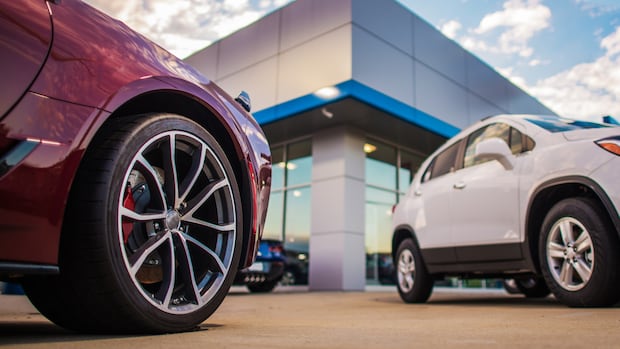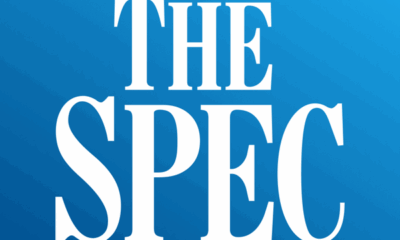Technology
Ontario Dealerships Face Scrutiny Over Hidden Charges in Car Sales

A recent undercover investigation by CBC’s Marketplace has uncovered that several car dealerships in Ontario are adding unexpected charges to the advertised prices of vehicles. This practice raises concerns about transparency in the automotive sales industry within the province.
The Ontario Motor Vehicle Industry Council (OMVIC) states that dealership advertisements must include all fees that consumers are expected to pay, excluding the Harmonized Sales Tax (HST) and licensing fees. This regulation has been in effect since 2010, mandating that total prices be clearly displayed to potential buyers. The investigation involved undercover reporters posing as customers across the Greater Toronto Area to determine if the prices advertised on dealership websites matched those given in person.
Marketplace received numerous complaints from viewers who reported being charged for additional items such as floor mats, rust protection, and extended warranties. The investigation targeted 15 dealerships representing major automotive brands, including Honda, Ford, Chevrolet, Hyundai, and Toyota. The findings were concerning: six of the dealerships charged prices exceeding those advertised, while four displayed images of more expensive vehicle trims than those available for sale. Additionally, six dealerships included extra features that were not requested by the undercover shoppers, although many of these were incorporated into the advertised prices. Some dealerships agreed to remove these add-ons upon request.
George Iny, director of the Automobile Protection Association, highlighted the evolution of deceptive practices in car sales, noting that “cheating has become more sophisticated” and lamented the prevalence of misleading advertisements. The rise in car purchases following the COVID-19 pandemic, which led to supply shortages, has heightened the urgency for consumers to be vigilant.
Hidden Costs and Misleading Advertisements
The undercover team faced several challenges when attempting to secure the advertised prices. For instance, at Honda Queensway in Etobicoke, a sales representative initially offered a lower price for a 2026 Honda Civic LX but warned that the customer would need to cover any price increase upon delivery. The dealership later stated that this was due to a potential miscommunication regarding a standard clause in contracts for factory-ordered vehicles.
At 401 Dixie Hyundai in Mississauga, a salesperson claimed that only military personnel or repeat customers were eligible for the advertised price of a 2025 Tucson, a stipulation that was not disclosed in the advertisement. Similarly, at Dixie Ford, the fine print revealed that a $999 down payment for a 2025 Ford F-150 STX would actually total $3,694 when additional fees, such as freight charges and air tax, were accounted for. The salesperson expressed frustration about the misleading nature of the advertisement, stating, “This is ridiculous, man.”
In response to Marketplace’s inquiries, Dixie Ford acknowledged the lack of clarity in their advertising and committed to improving it in the future. The dealership attributed some issues to the limitations of third-party advertising templates.
At Formula Ford in Pickering, a representative disclosed that the advertised $998 down payment could exceed $4,000 once additional costs were included. The dealership’s management disputed the findings, emphasizing their commitment to adhering to OMVIC guidelines.
Regulatory Oversight and Consumer Protection
Maureen Harquail, chief executive officer of OMVIC, urged consumers to be cautious and to walk away if advertisements are unclear or if the all-in price is not provided. She emphasized the need for transparency in automotive sales, particularly given that purchasing a vehicle is often one of the largest financial commitments for individuals.
OMVIC’s regulations stipulate that any vehicle depicted in an advertisement must correspond to the model being sold at the advertised price. If a higher-priced trim is shown, the advertisement must clearly state the differences. However, several dealerships, including 401 Dixie Hyundai, Queensway Hyundai, and Agincourt Hyundai, displayed images of higher-end versions of the Hyundai Tucson while advertising the base model pricing. The fine print in these ads often stated that “vehicles may not be exactly as shown,” a disclaimer that Iny criticized as inadequate.
In response to the investigation, Hyundai Auto Canada reiterated its commitment to high standards across its dealership network and announced a thorough review of the involved dealerships.
Consumer advocates, including Iny and Harquail, are calling for a 24- to 48-hour cooling-off period for car buyers in Ontario, allowing them time to reconsider their purchase before taking possession of the vehicle. Currently, once a buyer signs a bill of sale, the transaction is final unless specific contractual clauses are breached. Other provinces, such as Quebec and British Columbia, already have cooling-off periods in place for certain vehicle purchases.
In an interview, Ontario Premier Doug Ford advised consumers to be cautious and to ensure they are not paying more than advertised. As the investigation highlights, increased vigilance is necessary in the car-buying process to protect consumers from unexpected costs and misleading practices.
-

 World4 months ago
World4 months agoScientists Unearth Ancient Antarctic Ice to Unlock Climate Secrets
-

 Entertainment4 months ago
Entertainment4 months agoTrump and McCormick to Announce $70 Billion Energy Investments
-

 Lifestyle4 months ago
Lifestyle4 months agoTransLink Launches Food Truck Program to Boost Revenue in Vancouver
-

 Science4 months ago
Science4 months agoFour Astronauts Return to Earth After International Space Station Mission
-

 Technology2 months ago
Technology2 months agoApple Notes Enhances Functionality with Markdown Support in macOS 26
-

 Politics15 hours ago
Politics15 hours agoSecwepemc First Nation Seeks Aboriginal Title Over Kamloops Area
-

 Top Stories4 weeks ago
Top Stories4 weeks agoUrgent Update: Fatal Crash on Highway 99 Claims Life of Pitt Meadows Man
-

 Sports4 months ago
Sports4 months agoSearch Underway for Missing Hunter Amid Hokkaido Bear Emergency
-

 Politics3 months ago
Politics3 months agoUkrainian Tennis Star Elina Svitolina Faces Death Threats Online
-

 Politics4 months ago
Politics4 months agoCarney Engages First Nations Leaders at Development Law Summit
-

 Technology4 months ago
Technology4 months agoFrosthaven Launches Early Access on July 31, 2025
-

 Top Stories2 weeks ago
Top Stories2 weeks agoFamily Remembers Beverley Rowbotham 25 Years After Murder




















